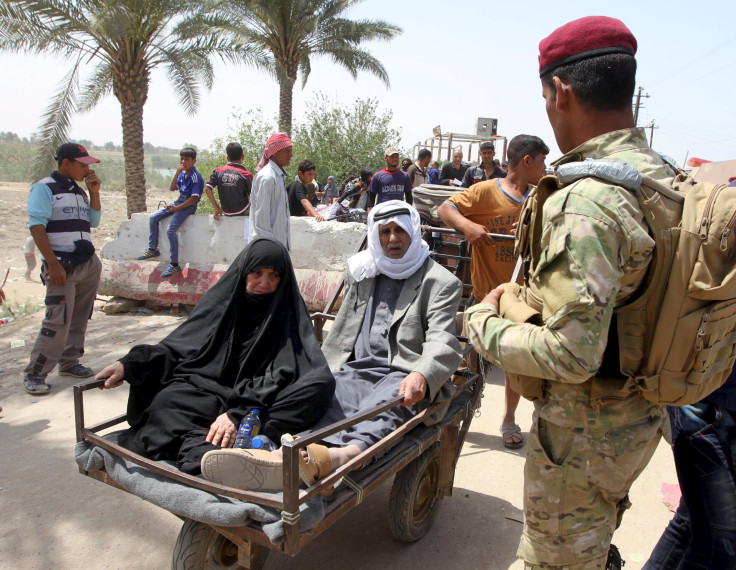Divisions Among Iraqis Help ISIS, Defeated In Tikrit, Gain Ground In Anbar

ISTANBUL -- The divisions and lack of communication between some of the Iraqi forces fighting in Ramadi against the Islamic State group are becoming a lethal problem, fighters on the ground said, and hampering the fight. The Islamic State group gambled earlier this year on a strategy that concentrated its forces in western Iraq's Anbar province and went for an offensive on Ramadi, and so far that strategy is working. The coalition that took the key city of Tikrit back from the militants last month is suffering setbacks in Anbar, because the government's Iraqi Security Forces (ISF) and the predominantly Shiite volunteer forces are struggling to gain the trust of the Sunni tribal fighters in the region.
Within the last week, dozens of police officers in Ramadi, the capital of Anbar, were killed, including two senior officers, because of a mutual distrust and lack of communication between the Sunni tribal fighters, the ISF and the Shiite militias. Those issues were also visible to observers in the battle for Tikrit, a city that was eventually liberated with help from U.S.-led airstrikes.
The police officers in Ramadi were killed in clashes with the Islamic State group, also known as ISIS or ISIL, and by bombs planted by the Sunni militant group. It is unclear if any of the soldiers were killed in friendly-fire incidents during coalition airstrikes. Brett McGurk, deputy special presidential envoy for the Global Coalition to Counter ISIL, said in a tweet Monday that 33 coalition airstrikes targeted ISIS units and outposts, including some in Ramadi.
Parts of the city of Ramadi are under control of ISIS but are being contested by the ISF and the Shiite militias. Following the battle of Tikrit, the ISF and the Popular Mobilization Committee, as the Shiite militias are commonly known, made their way to Anbar, where their leaders said they would easily defeat the militants.
"Our next stand and battle will be from Anbar to liberate it entirely," Iraqi Prime Minister Haider al-Abadi said in a post on his official Facebook page last month. "We will prevail in Anbar as we prevailed in Tikrit."
In Tikrit, soldiers fighting against ISIS danced around the Iraqi flag in front of Tikrit University following the so-called liberation, yelling “Next, Anbar, then on to Mosul!”
But it's not regular army soldiers, or Shiite volunteers, who are leading the fight against ISIS in Anbar. It's the police forces, who have been on the front for several months, supported by wealthy Sunni tribes that have been funding them and providing weapons. Those tribes have been reluctant to allow the Shiite militias and the ISF into the city to help because of historical mistrust between the groups.
There is also a lack of tactical coordination between the Sunni tribes, the local police forces, the ISF and the Shiite militias in Ramadi city, say fighters on the ground, who requested to remain anonymous for security reasons.
The Sunni tribes and local battalions have established common tactics for fighting the militant group, but that is not meshing well with those used by the Shiite militias and some of the ISF.
There are also disagreements between commanders about leadership, because many Shiite fighters think some of the Sunni tribes are actually aiding ISIS, not helping defeat it.
Tens of thousands of civilians fled Ramadi several weeks ago because of the increase in airstrikes and intensity of ground fighting. Hundreds returned home once the ISF and Shiite militias moved into the city, but a return to normal life is still far away, as residents inside the city say access to food and water is limited.
© Copyright IBTimes 2024. All rights reserved.











